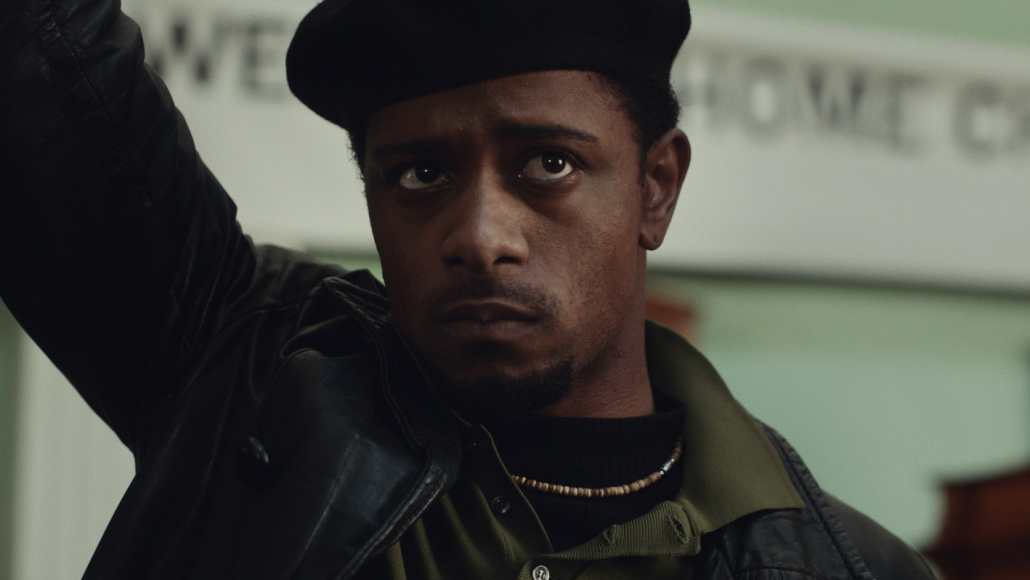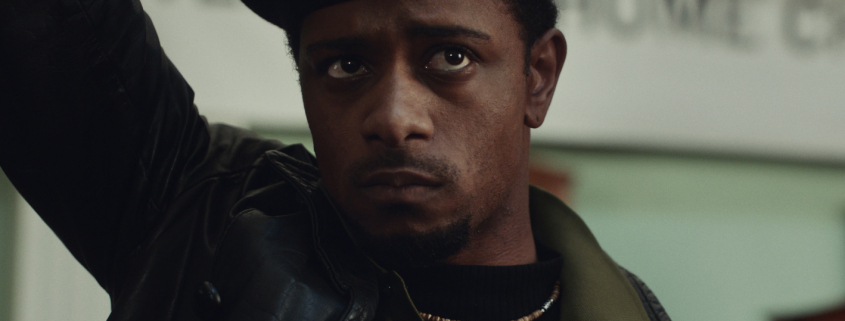‘Judas and the Black Messiah’ tells the true story of a rat within the Panthers

“Judas and the Black Messiah” tells the story of Fred Hampton (Daniel Kaluuya), the chairman of the Illinois Black Panther Party in the months leading up to his murder. Though Kaluuya gives a career-defining performance as Hampton, the story is told through the lens of Willian O’Neal (Lakeith Stanfield), notorious FBI informant.
After getting arrested for impersonating an FBI agent to steal cars, O’Neal avoids jail time by working for the deceptively friendly FBI agent Roy Mitchell (Jesse Plemons) as an informant. O’Neal is ordered to infiltrate the Black Panthers where he quickly rises to become security captain and friend to Hampton.
Kaluuya and Stanfield are perfect complements as the two leading men. Kaluuya’s passionate intensity is rooted in his full dedication to the Panthers, and Stanfield’s jittery intensity comes from his paranoid internal conflict, creating a haunting parallel between two men trying to protect themselves through starkly different methods.
It seems with each starring role Kaluuya is branded as a breakout star again and again. In this latest show-stopping performance, Kaluuya’s Hampton speaks with such conviction and acts with unwavering bravery that it seems like there is no way he could fail. But history knows things happen differently.
The film delves deep into Hampton’s life through his relationship with fiancée Deborah Johnson (Dominique Fishback), showing Hampton’s personal side which makes his untimely fate even sadder. Their willingness to love and bring life into the world is a radical act of revolution in and of itself and actress Fishback let this idea guide her performance.
“We think that revolutionaries are only gun carrying and speaking out on platforms,” Fishback said in a virtual roundtable discussion Saturday. “How revolutionary is it to create love and to create life and surrender it to the world, that is extremely radical. On a basic level women are and always have been revolutionary and radical.”
Fishback not only contributed her acting talents but her writing as well. A poem her character reads to Hampton at the beginning of the film sets up the emotional core of the movie, but it was not in the original script. Before production began, Fishback told Director Shaka King that she wanted to add something to the script.
“One of the things [Johnson] says is ‘do you like poetry’ and then we don’t hear a poem, and the Panthers were very poetic people,” Fishback said she emailed to King. “I think that we missed an opportunity if we don’t hear one and [King] said, ‘you are absolutely right, do you want to take a shot at that poem?’ So from the beginning of my involvement with the film I’d written a poem on behalf of Deborah Johnson that she shares with Chairman Fred.”
Though there are only two main women characters in the film, they both support the Panthers in different ways. Judy Harmon (Dominique Thorne) is a rifle-carrying member of the security team who participates in the heart-pounding shootout at the Panther headquarters.
“It’s no doubt that there are few female faces that you see solely on screen and so it was important to [King] to make sure that we did it was clear what the messaging was, that there was no confusion about the fact that each of these women are just as much of a force as the other people you’ve been seeing on screen,” Thorne said. “With that comes the pressure to represent all the women who really did occupy these spaces.”
Because of the stellar performances of Fishback and Thorne, audiences are left with the message that there is no one right way for a woman to be powerful, bringing strong feminist themes to a movie about men.
The film only falters when it cuts away from the Panthers to the FBI where the only thing more weighed down than the clunky dialogue are the heavy prosthetics that Martin Sheen wears as racist FBI director J. Edgar Hoover. These scenes gave unnecessary context and halted the momentum that the Black Panther’s energy created.
Hoover feared the Black Panther’s power, branding them as the “single greatest threat to our national security.” But when Hampton united marginalized groups in Chicago to form the Rainbow Coalition, the FBI branded them as terrorists and acted in accordance.
This inaccurate label stuck throughout history, and since Black history is never taught properly in typical classrooms, the events that truly happened are never covered. This film brings light to one part of that history that needs to be properly remembered.
“It’s really seeing what the Black Panther party stood for, what Chairmen Fred stood for is that they healed the sick,” Kaluuya said at the roundtable. “They fed kids with the breakfast program, they educated kids, they covered legal aid, they organized buses in order for people who had family members in prison to go visit them. They really poured love into their community and the narrative of them being a terrorist organization is rooted in white fear.”
The themes of the film are not confined to the past. The movie’s timely release comes after a summer of Black Lives Matter protests and a resurgence of conversations about race in America.
“[The film] holds a mirror up to society.” Fishback said. “When we think about the fact that Chairman Fred was 21 years old and he was assassinated in his bed and we think about Breonna Taylor being murdered in her bed and the murderers getting off, we can see that we haven’t come so far and that it’s time to take responsibility for the things that we have done.”

